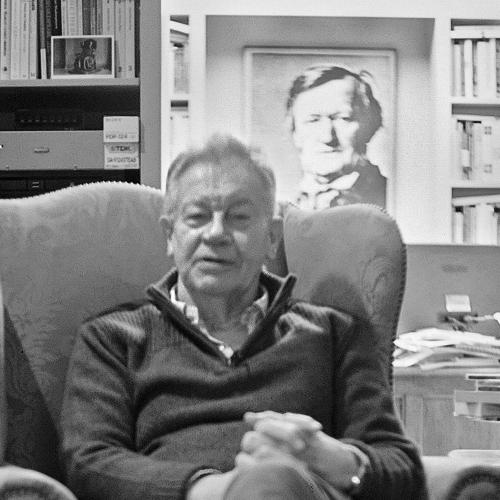COMPOSERS: Richard Wagner
LABELS: PentaTone
ALBUM TITLE: Parsifal
WORKS: Parsifal
PERFORMER: Christine Elsner; Franz-josef Selig; Michelle DYoung; Evgeny Nikitin; Eike Wilm Schulte; Dimitry Ivashchenko; Berlin Radio Symphony Chorus/Simon Halsey; Berlin Radio Symphony Orchestra/Marek Janowski
CATALOGUE NO: PTC5186401
Wagner’s last, strangest and deepest music-drama has fared astonishingly well on disc, with almost no dud versions, and the live recordings under Hans Knappertsbusch from Bayreuth are a gold standard. This new performance, also live but given in concert, though quite different from those earlier accounts, takes its place with them in compellingness and emotional depth. It has the spontaneity of something which has sunk so deeply into the performers’ minds and souls that they can throw caution to the wind and still be accurate.
The first thing to realise about Parsifal is that it is not a religious work: it is about the forces that lead people to be religious, and especially about guilt, desire and compassion. Thanks to its extraordinarily adventurous harmonies, and to that orchestration which Debussy described as ‘being lit up from within’, it has a tentative feel. But at the same time the drama that it enacts is urgent.
Marek Janowski, with his superb vocal and orchestral forces, manages to convey all this without false rhetoric or over-emphasis. He realises that the lengthy narrations giving the story’s background are just as dramatic as any of the events we hear taking place in the present. Indeed, it is one of Wagner’s achievements that ‘past’ and ‘present’ are no longer that distinguishable. So Gurnemanz, a veteran Knight of the Grail, sung by Franz-Josef Selig, is as vivid in those narrations as in his actions.
Christian Elsner is a wonderfully sensitive and expressive Parsifal, and his long scene with the Kundry of Michelle DeYoung is the pivot of the drama, as it needs to be but seldom is. But the strongest performance of all is the Amfortas (ruler of the Grail Kingdom) of Evgeny Nikitin, a Russian who can sing German idiomatically, and who realises all the torment, physical as well as spiritual, in this trickiest of roles.
The various choruses are excellent, though it’s a pity that boys’ voices weren’t used in the Grail scenes; and the Berlin Radio Symphony Orchestra manages to get all the subtle details of the score across in an unusually rapid account. The recorded sound is sensational, so realistic as to be almost alarming. If Janowski’s planned cycle, of which this is the third instalment, continues like this, it will unquestionably be the finest modern traversal on disc of Wagner’s achievement.
Michael Tanner
